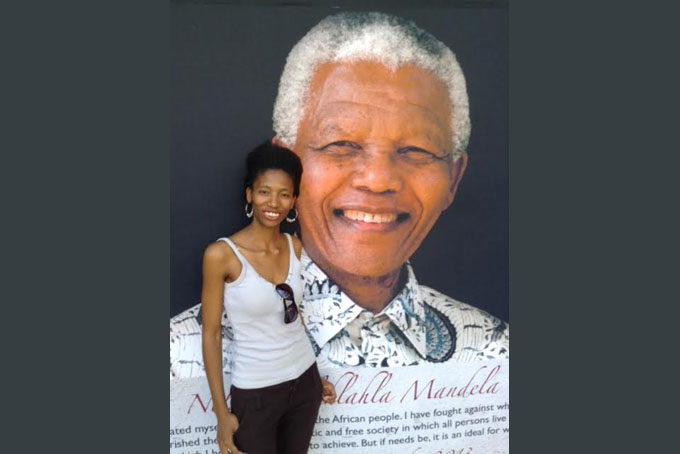
PRETORIA, South Africa – Most of the leaders and dignitaries who converged on this capital city last Monday from around the world to attend the official memorial service for former president Nelson Mandela have departed, but grateful South Africans continue to fill the streets by the thousands to honor their beloved icon.
Thousands continued to file briskly past his outstretched, encased casket as his body lay in state here for the last day on Friday at the Union Buildings, just steps away from the seat of power.
“I need this opportunity to see him,” said Mapula Pilusa as she stood in a line Friday morning that slowly inched its way toward Mandela. The line snaked for miles, curving off of Steve Biko Street onto Stanza Bopape and curving again on Hamilton Street, past McDonald’s and the Pretoria Hotel on one side of the street and Nana’s Hair Café on the other.
“As you can see, the queues are long, but I am happy for that,” Pilusa said, referring to the lines leading to the Union Buildings from different directions in the city. “I’m glad I am getting at least one opportunity to see him.”
At 23 years old, Pilusa did not live under pre-1994 rigid racial segregation known as apartheid, a system that required Blacks to carry passbooks at all times.
“I am young and I don’t know that much about apartheid,” she said. “I am learning more and more about it and know you can now do anything you want to do.”
What many have wanted to do was leave flowers, posters and other mementoes in front of the Mandela residence as dignitaries filed in and out of the stately house to comfort Graca Machel, his grieving widow. Visitors from near and far gathered out front during all hours to reflect, to take photos or simply to mourn.
Vendors have remained nearby, hawking flags, T-shirts and buttons bearing images of the Nobel Prize winner who became one of the world’s most venerated figures. He is alternately referred to as Nelson Mandela, Tata (father) or Madiba, the clan name he preferred.
It was more important what he did than what he was called, judging from the reaction of South Africans. As thousands lined up to view the body, Pretoria became a city of honking horns and dancing. Without prompting, people would break out into tribal chants, shout “Mandela, Mandela” or perform a dance called the toyi-toyi.
On Friday, there were constant squeals of sirens piercing the air, helicopters circling the city, often indicators of official Pretoria traveling from one point to another point.
Kefilwe Molefi said the mood Friday stood in sharp contrast to when she first learned that Mandela died a week earlier at the age of 95.